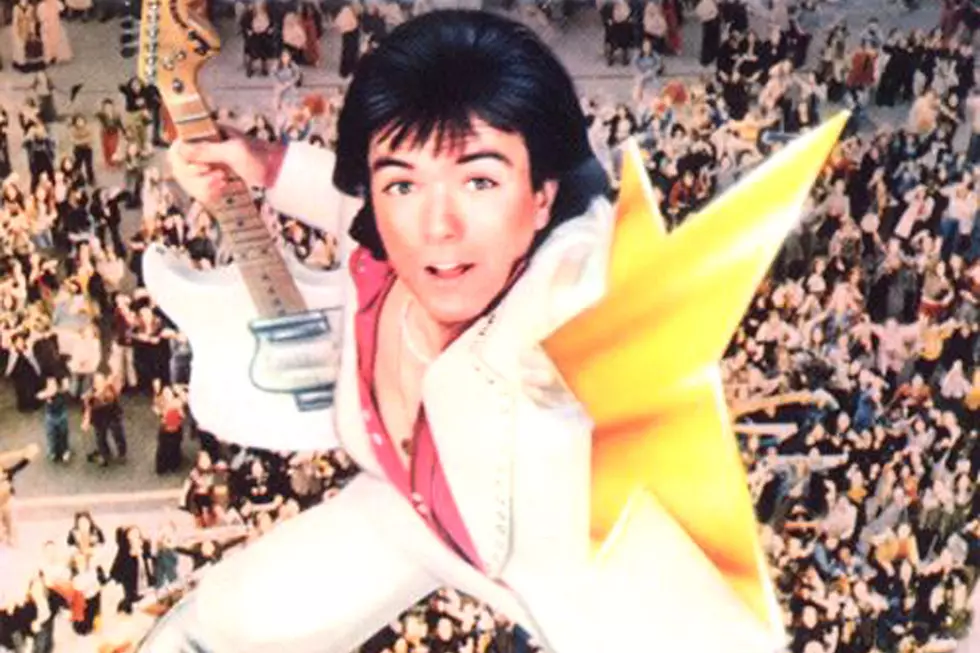
Top 10 David Cassidy Songs
The Partridge Family were not a real band. Hell, they weren't even a real family. But they were the vehicle for some very fine pop songs that found a home in the hearts and ears of many in the early '70s.
Plenty of teens loved watching David Cassidy, who died Nov. 21 following hospitalization for multiple organ failure, perform, after The Partridge Family show made a teen idol of him.
There was very little detective work needed to realize that the people on TV were not actually playing the instruments, but for those who loved the show, did that really matter? Their 1971 album Sound Magazine was never meant to go head-to-head with Who's Next in the annals of rock history, and no one was mistaking Cassidy for Mick Jagger along the way. That being said, he was a genuinely good singer, one of natural vocal talent.
With Cassidy's passing, we are looking back at a batch of great pop records in which he took part. Most are found on Partridge Family records, others from his solo recordings, but all have merit and are worth a spin or two. We invite you to lose yourself in some gumtastic pop music from a bygone era.
"Song for a Rainy Day"
Appearing on David's second solo album, 1972's Rock Me Baby, "Song for a Rainy Day" shows that maybe he had something to offer as a songwriter. He co-wrote this song with Kim Carnes, who would go onto fame of her own in a few years with "Bettie Davis Eyes." The soulful rocker is accented nicely with strings, but it is Cassidy's vocal performance that really sells it.
"I Can Hear Your Heartbeat"
"I Can Hear Your Heartbeat" ends side one of the first Partridge Family LP (1970's The Partridge Family Album), and is one of the most rock and roll numbers to appear under that banner. It's prime garage-tinged bubblegum with slightly haunting bridges and gritty guitar riffing.
"I Think I Love You"
Released in the summer of 1970, "I Think I Love" you started to gain airplay before the TV show even hit the air, and zoomed straight to the top of the charts soon after the premiere. Close to 50 years later, it remains the signature Partridge Family song.
"I'll Meet You Halfway"
Found on the second Partridge album Up To Date, "I'll Meet You Halfway" remains one of the best in their catalog. Producer Wes Farrell co-wrote the song with legendary Brill Building writer Gerry Goffin, whose ex-wife, Carole King, was riding highat the same time with her Tapestry LP. While this tune might not reach the depth of Ms. King's work, it stands as a great pop song, later covered by L.A. rockers Redd Kross.
"Ricky's Tune"
Cassidy held down a solo career in tandem with the Partridge Family's recordings and television show. His solo albums, and singles, fared quite well, especially in the U.K., where his stardom was genuine mania, even more so than in America. "Ricky's Tune" is a wonderful self-penned country-tinged pop song from his 1972 release Cherish. If only he had more of these in him, he could truly have made his case as something beyond Partridge-dom.
"I Woke Up In Love This Morning"
If there is one song in the Partridge Family catalog that should have been huge, it's this one, from 1971's Sound Magazine. Written by Irwin Levine and L. Russell Brown, it has all the markings of a No. 1 hit. While its showing at No. 13 is nothing to scoff at, it deserved better and remains, in many ways, the best record issued under the Partridge moniker.
"Gettin' It In The Streets"
The title track from Cassidy's final stab at a solo rock and roll career stands as one of his finest recorded moments, thanks in large part to some tasty guitar work from Mick Ronson. Yes, that's right, the David Bowie/Ian Hunter sideman hooked up with Cassidy for this gem. There was chatter at the time that Ronno wanted to form a band with Cassidy on lead vocals, but it never went beyond this sole recording. With the failure of this album (unreleased in the U.S. at the time) Cassidy jumped back into his acting career.
"Rainmaker"
The Partridge Family albums are a mixed bag. Alongside lightweight, pre-teen fluff, you will find some genuinely great songs like this one. "Rainmaker" was written by producer Wes Farrell, Jim Cretecos, and Mike Appel — who is a story unto himself playing with legendary garage rockers the Balloon Farm, producing proto-heavy metal band Sir Lord Baltimore and, for a time, managing Bruce Springsteen.
"Doesn't Somebody Want to Be Wanted"
The Partridge Family television show was based, in part, on the Cowsills, a pop/rock band comprised of a mom and her kids. Apart from that one episode with Richard Pryor and the one where they do a benefit show to help Native Americans build a school, the show rarely crossed over into the more contentious realities of the era. It was removed from anything deeper than teen turmoil. Similarly, the point of the records was not to make grand artistic statements, but to provide a fertile ground for catchy pop songs like this one.
"Point Me in the Direction of Albuquerque"
Another song from the pen of Tony Romero, the man responsible for "I Think I Love You," "Point Me In The Direction Of Albuquerque" is a massively catchy little tune. Though it was never released as a single, it was featured in the series and has long been a fan favorite.
"I Would Have Loved You Anyway"
Tony Romero scored the massive No. 1 hit with "I Think I Love You," then returned to write this one found on the third Partridge Family LP, Sound Magazine. It has that same polished pop with minor key overtones that take it a cut above your standard bubblegum fare.
"Cruise To Harlem"
Another track from his 1976 Gettin' It in the Street album, "Cruise To Harlem" is an R&B influenced rocker that was very much of the era while recalling early rock and roll sounds as well. Cassidy co-wrote the song with some notable collaborators including Gerry Beckley from the group America, and the one and only Brian Wilson. It could have been a hit. Heck, it should have been a hit!
"Echo Valley 2-6809"
Another song that was a "hit" due to being featured in the TV show, "Echo Valley 2-6809" was featured on the Sound Magazine album, but never issued as a single. Despite that, its appearance in an episode guaranteed its place in Partridge fans' hearts.
More From Diffuser.fm









